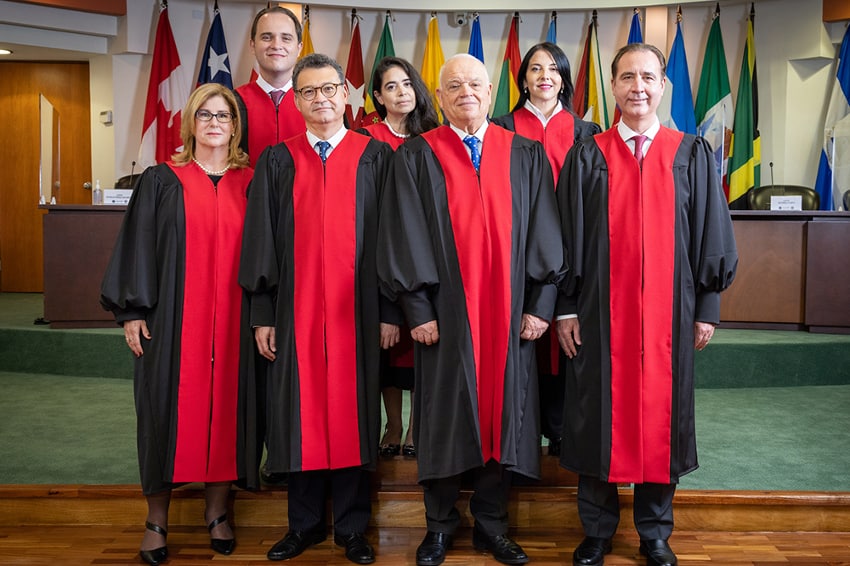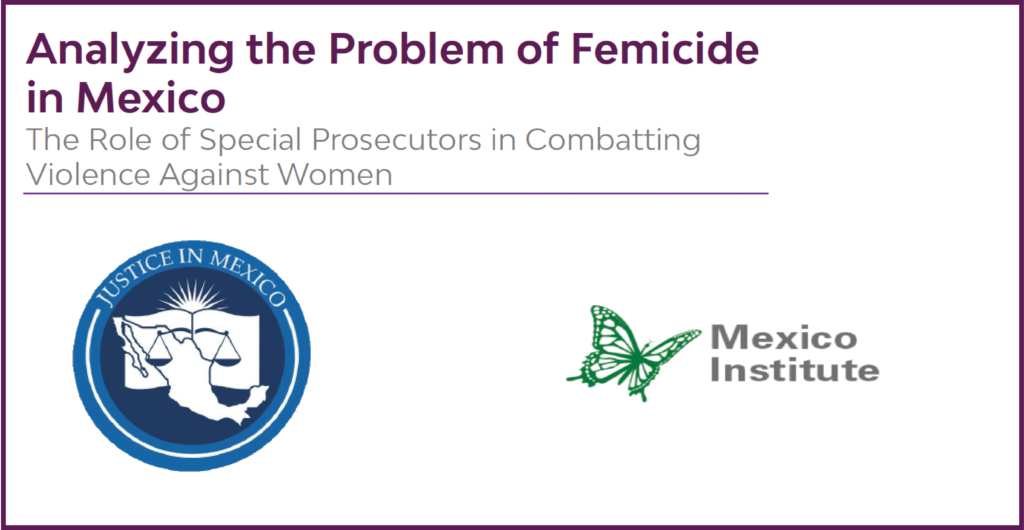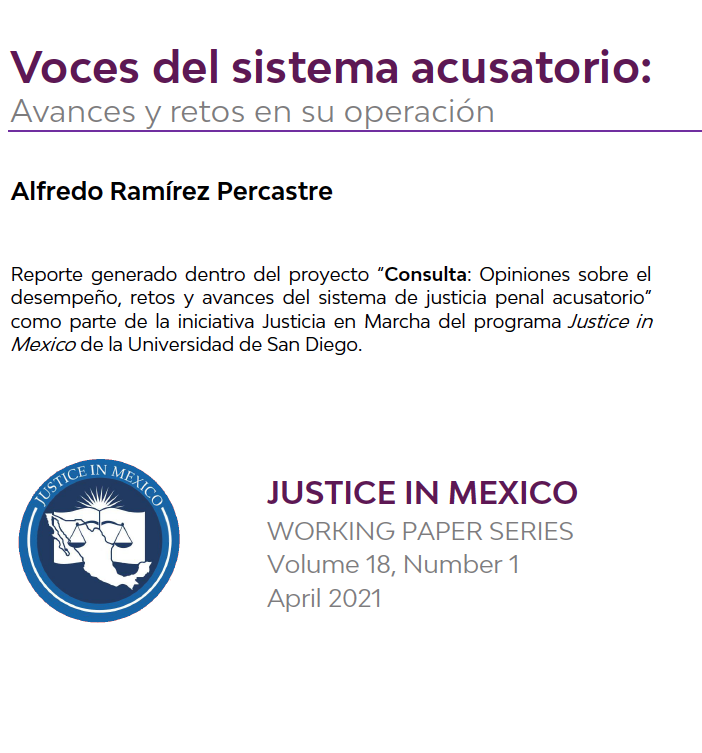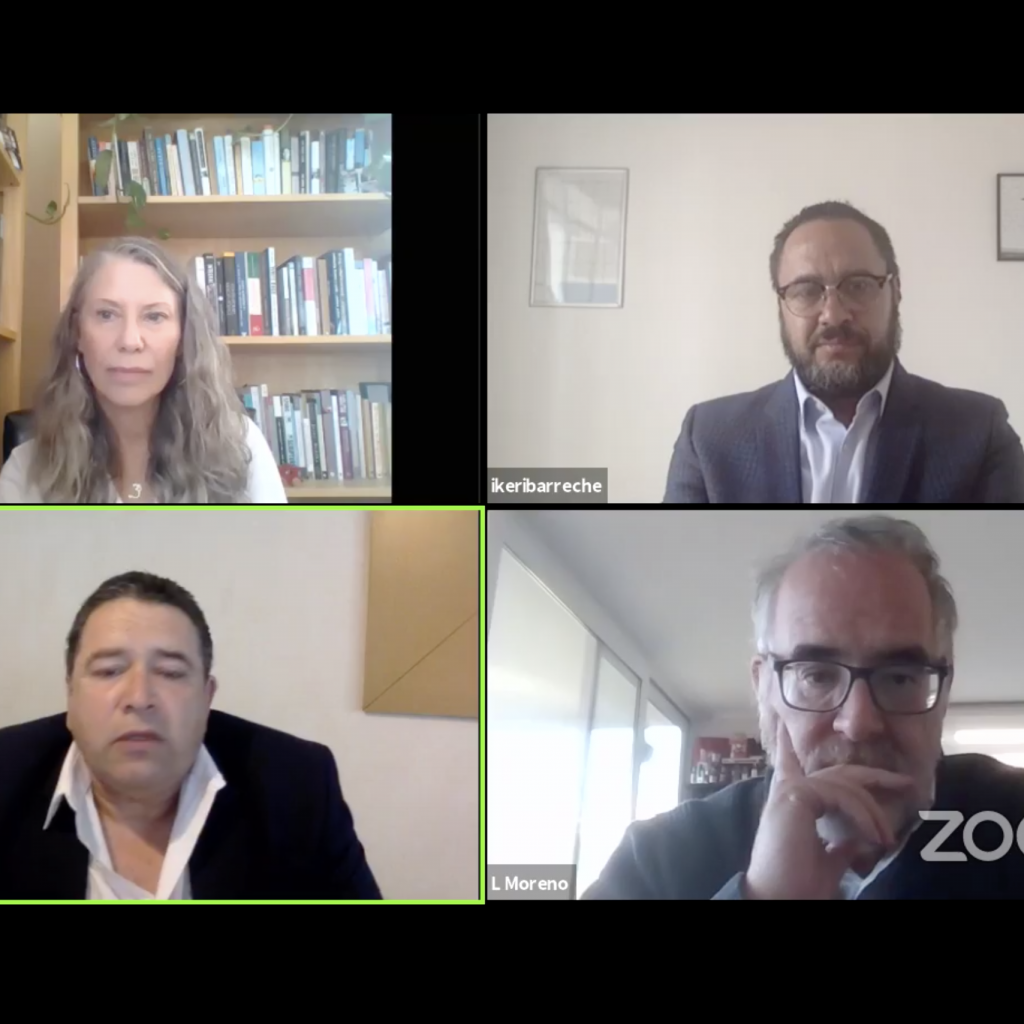03/27/14 (written by lcalderón) — Mexico’s National Penal Procedures Code (Código Nacional de Procedimientos Penales) has been generally well received by Mexicans since its publication in early March. Overwhelmingly approved by Congress in a 407-28 vote on February 5, President Enrique Peña Nieto then published the code on March 4. The code aims to establish uniformity in the application of criminal law across Mexico’s 31 states and the Federal District (Distrito Federal, DF). It also seeks to standardize procedures involving investigations, arrests, charges, hearings, sentencing, alternative dispute resolution, and reparations, while ensuring the rights of all interested parties throughout the judicial process. It is a critical step forward for Mexico towards its 2016 deadline to have the New Criminal Justice System (Nuevo Sistema de Justicia Penal, NSJP) operational nationwide.

Research released by the Mexico City-based institute Parametría shows the Mexican public’s belief that the NSJP and the new unified penal code can indeed improve the judicial system and the country’s implementation of justice. The percentages of approval vary from each factor taken into consideration, but overall more than 50% of the population strongly believes the new code will create transparency and enhance the implementation of judicial procedures. An additional 48% of those surveyed state that trials should be open to the public and journalists—a key component of the NSJP—, while 49% agree that detained suspects should not be flaunted as criminals without a sentence, which was a regular occurrence under the Calderón administration (2006-2012). For its part, the Peña Nieto administration has largely stopped the practice of showcasing detained suspects before the media before their day in court, a practice known as “perp walks” or “presentaciones.”
Despite the significant steps taken with the new criminal code’s approval, the public’s confidence in the code and NSJP as a whole is perhaps due to its strong disapproval of the current justice system, and thus the public’s welcoming of a new, accusatorial, modern judiciary—a clear break from the past. Parametría’s research from a December 2013 survey show the public’s abysmal ratings of the outgoing system. For example, 45% of those polled believed that the law favors criminals, particularly those with economic resources. 42% of the respondents thought that criminals could be declared innocent if they have enough money, and another 62% doubted that authorities would treat them properly under the law. 65% disapproved of investigative police work when researching a case, and an even 60% thought that the Supreme Court (Suprema Corte de Justicia de la Nación) was not effectively upholding the Constitution. The Supreme Court was also considered the most trusted institution when compared with judges and with the Public Prosecutor’s Office (Ministerio Público, MP), although the public’s opinion of the three entities when asked if they had confidence in them was staggeringly low. Only 28% of those surveyed expressed trust in the Supreme Court, 27% in judges, and just 23% in the Public Prosecutors. Parametría also reported on the high level of distrust that civilians—nearly two-thirds of those surveyed—have about their human rights being protected throughout the judicial process. Only 6% fully agree with the statement “Honesty and justice prevail in all trials nationwide,” while 67% disagree, and 25% were undecided. Meanwhile 69% believed that suspects who admit their guilt in a crime have not done so voluntarily.

Perhaps most importantly, a full 73% did not believe Mexico’s laws are equally applied. This is a significant decrease from Parametría’s 2011 survey that found only 56% of those polled held that conviction. Reports suggest that this drop may be due to controversial cases in recent years like the release of drug kingpin Rafael Caro Quintero in 2013 on a judicial technicality, or the case of Alberto Patishtán, the indigenous teacher pardoned by President Peña Nieto after serving 13 years in prison for his wrongful conviction in the murder of seven police officers. As José Luis Prado Maillard, director of the Law School at the Autonomous University of Nuevo León (Universidad Autónoma de Nuevo León, UANL), expressed in Mexico Voice’s translation of La Jornada, “The challenge of the new system involves the creation of mechanisms to ensure the presumption of innocence of the accused and that those responsible are punished based on [legal] protocols attached to rights.” He continued, “[The goal] is to avoid cases like the one of the French citizen Florence Cassez, who was set free because it was considered that her rights were violated, even though there was evidence of her participation in a kidnapping ring.” Even compared with 18 other Latin American countries in the 2011 Latinobarómetro survey, Mexico had the lowest approval among civilians when asked, “Do you agree with the statement ‘the judicial system punishes the guilty?”(“El sistema judicial castiga a los culpables?”)
Given the public’s low rating of the current, yet outgoing judicial system, Mexican authorities are working to regain the public’s confidence through systematic reforms. Although the NSJP and the new criminal code are nascent, the Mexican public seems optimistic about their ability and capability to protect the victim, respect human rights and the presumption of innocence, and uphold the procedures that would strengthen Mexico’s judicial system.
Sources:
“Congress approves new unified criminal code in Mexico.” Justice in Mexico. February 19, 2014.
Mexico Voices. “Mexico: New Criminal Justice System Advances Slowly.” La Jornada. March 11, 2014.




